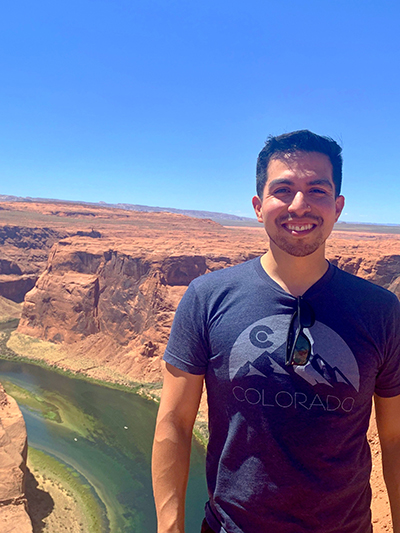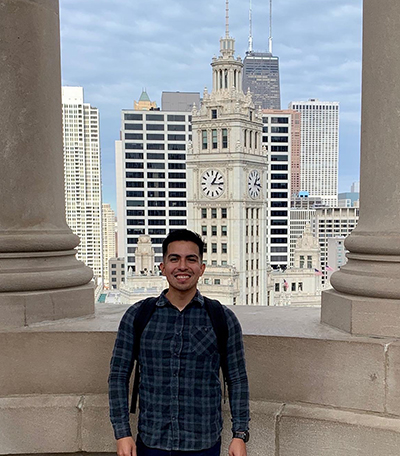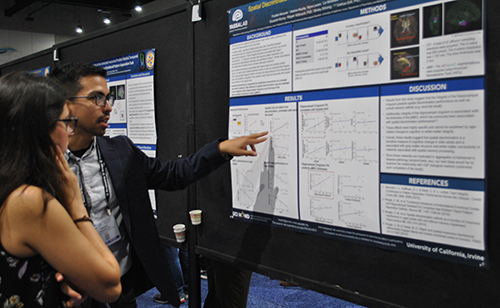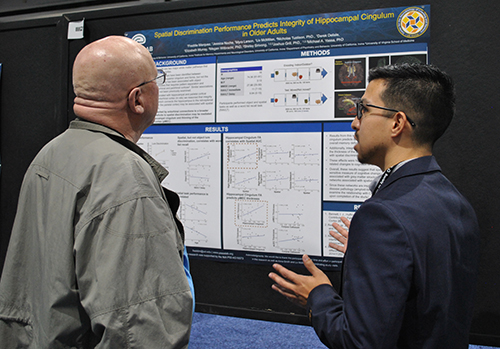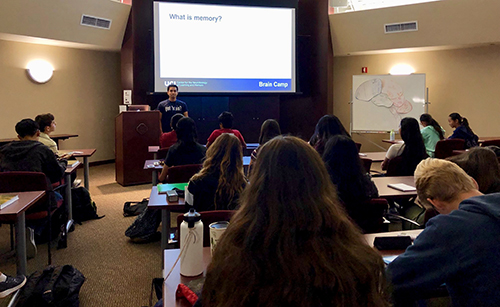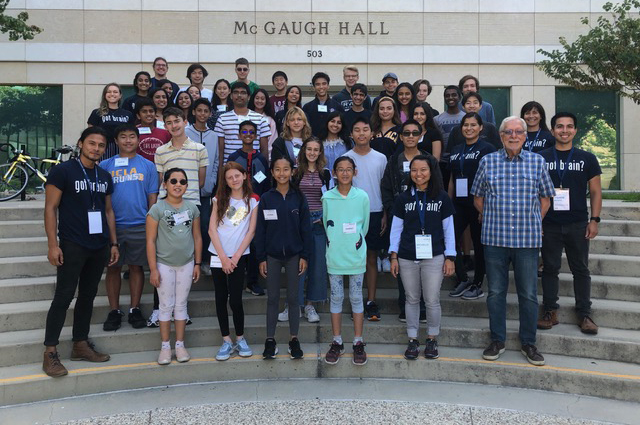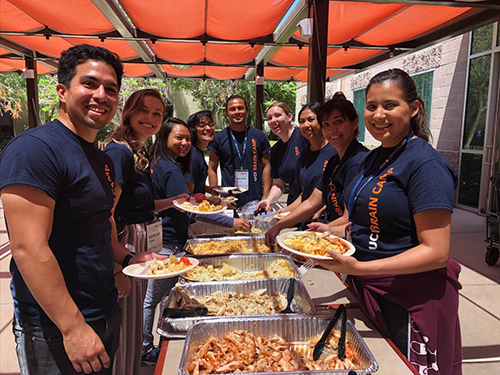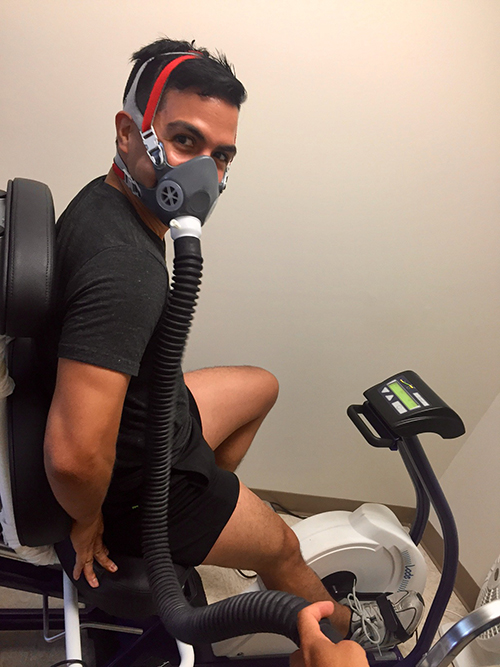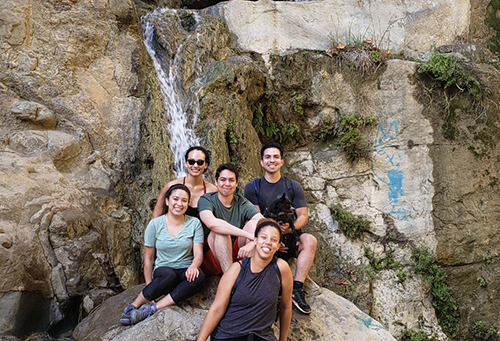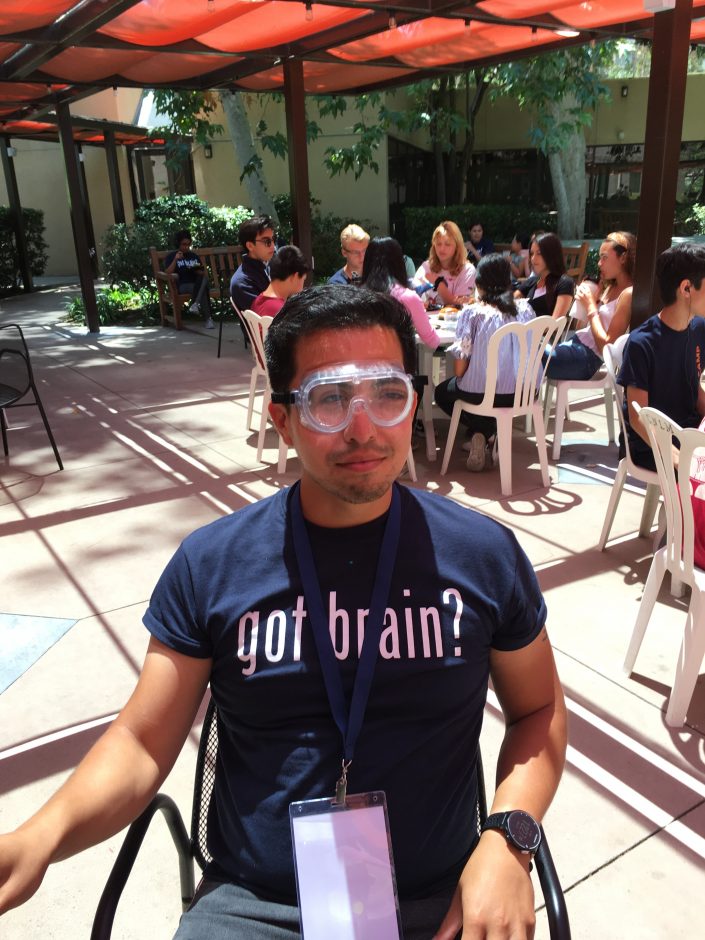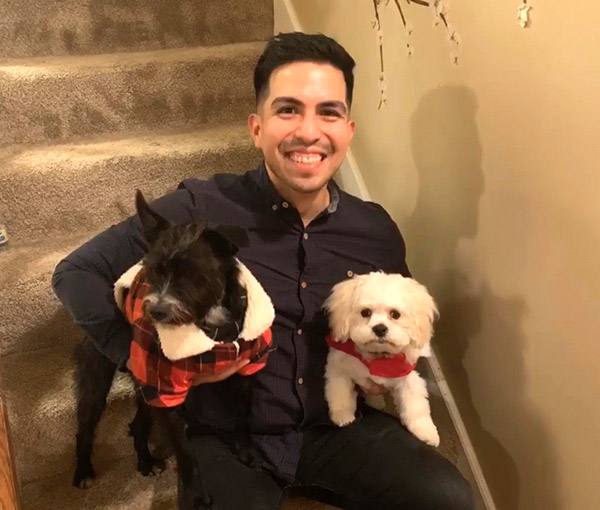
Graduate Student
Pronouns: He/Him/His
Office: 1400 Biological Sciences III
Email: freddim@uci.edu
Freddie Marquez
Lab Research Projects
I contribute to the following research areas in the Translational Neuroscience Laboratory.
Individual Research Projects
Alzheimer’s disease is the most common cause of dementia, and the most common form of Alzheimer’s severely impacts memory. Some cases are caused by genetic mutations. Aside from those cases, the greatest risk factor is age. Currently, one in ten people age 65 and older has Alzheimer’s disease. This means that an estimated 5.5 million Americans are affected. In the absence of a treatment or cure, this number could increase to nearly 14 million by 2050. That’s more than the populations of Los Angeles County and Orange County combined.
In our study, adults without dementia over the age of 65 take a memory test that is commonly used in clinical assessments. In it, they listen to a set of words and try to repeat as many of them back. They then play a computer game that shows objects on a screen. These objects are then shown to them a second time and they’re either in the same location or a new location. Their job is to tell us which ones moved. This allows us to measure how well they are at distinguishing items that moved – what we call spatial discrimination. After playing the game, their brains were scanned in an MRI scanner while they were just resting. The signals that we get from these scans allow us to study how correlated one brain region is with another region.
- Bridge to the Doctorate Award, National Science Foundation (2015 – 2017)
- Eugene Cota-Robles Fellowship, UC Irvine Graduate Division (2017 – 2019)
- Graduate Research Fellowship Program, National Science Foundation (2017 – 2020)
- Kavli Summer Institute in Cognitive Neuroscience Fellowship, Kavli Foundation (2017)
- Kavli Summer Institute in Cognitive Neuroscience Fellowship, Kavli Foundation (2018)
- Jared M. Roberts Memorial Graduate Student Award, Center for the Neurobiology of Learning and Memory (2018)
- Pedagogical fellowship at UCI Brain Camp, Center for the Neurobiology of Learning and Memory (2019)
What the lab means to me…
“I am extremely grateful to have the opportunity to be in such a supportive and enriched environment. I get to work with some of the brightest people that I have met and there is a culture of forging positive changes. It’s also a place where I can exchange ideas with people that come from a diverse range of experiences.”




